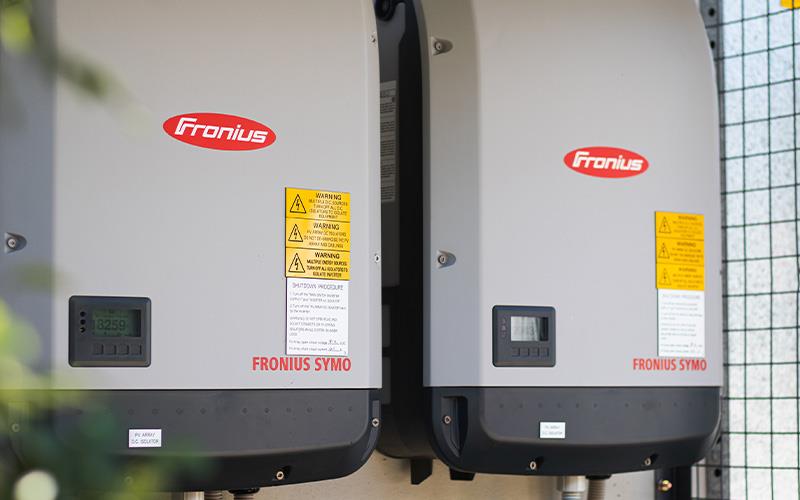Transitioning Your Home to Battery Storage

Electricity is something we rarely think about - until it’s not there. From keeping the lights on to powering our everyday essentials, a steady energy supply is something most of us take for granted. However, as power grids become more strained and energy prices fluctuate (and not in a good direction), many households are now looking for more ways to take control of their own energy. One of the most effective ways to do this is by adding a battery to your home’s solar system.
Storing your gained solar energy means you can access energy when needed most, like in the evening, on cloudy days, or during unexpected power outages. Batteries are simple, but they spark a lot of questions. How does it work? Is it worth the investment? Will it really make a difference? Here is a closer look into what battery storage can offer and how it not only suits all but is, in fact, the future of home energy.
Why Battery Storage?
A solar system without a battery sends any unused electricity back to the grid. While this helps reduce overall energy demand on the grid, it also means that when the sun goes down, you may still need to purchase additional power, and often, it is at a higher price than what you earned for the excess solar energy you sold to the grid in the first place.
A home battery changes this by storing unused solar energy for later use, such as in the evening or on cloudy days. This can mean lower power bills, less reliance on the grid, and more control over household energy use.
Lessons from Cyclone Alfred
Recent extreme weather events have shown how vulnerable our power grid can be. Cyclone Alfred recently swept through the Gold Coast, Sunshine Coast, and Northern NSW, leaving more than 300,000 homes and businesses without power. Many residents were in the dark for days, struggling to keep food fresh, charge essential devices, work, and stay connected. The financial impact of the power outage has and continues to be astronomical. As was the emotional toll.
For those with home solar battery storage, the experience has been different. Households with solar battery systems with blackout protection continued using stored energy even when the grid was down, providing power for essentials like lighting, refrigeration, and communication devices.
Climate events are seemingly becoming more frequent, so having an independent energy source is becoming less of a luxury and more of a necessity.
What to Consider When Adding a Battery
Upgrading to a home battery isn’t a one-size-fits-all decision: your home’s energy use, solar production, and household needs all play pivotal roles. We recommend sitting down with a solar battery expert like First Choice Solar to help guide you through key considerations like:
- Battery Size & Capacity: The right battery size depends on how much energy your home uses and how much excess solar power you generate. A battery that’s too small might not store enough energy for your needs, while one that’s too large could be an unnecessary expense.
- Cost & Incentives: Battery prices have dropped significantly in recent years, and government rebates in some areas make them even more affordable. While there is an upfront investment, the long-term savings on electricity bills and the ability to store energy when rates are low can help offset costs over time.
- Backup Power Capabilities: Not all batteries provide backup power during outages. If resilience is a priority, choosing a system that can keep essential appliances running when the grid goes down is crucial.
- Lifespan & Warranty: Most home batteries are designed to last 10 to 15 years, with warranties that guarantee performance over time. Like any technology, their efficiency will gradually decrease, but proper maintenance can extend their usefulness.
- Integration with the Grid: Many homeowners remain connected to the grid even after installing a battery, as some energy providers offer Virtual Power Plant (VPP) programs, in which homes with batteries can share stored power with the grid (at their discretion) in exchange for financial incentives.
So is Battery Storage Right for your Home?
If you already have solar, adding a battery is a brilliant next step, especially if:
- You generate more solar power than you use during the day.
- Your electricity bills are still high, particularly in the evening.
- You’d like backup power during outages.
- There are rebates or incentives available in your area.
Home battery storage is more than just a way to save on power bills—it’s a clever step toward greater energy independence and a more stable electricity future. As technology continues to improve and more homes make the transition, storing solar power is becoming easier and more accessible than ever.
The widespread outages caused by Cyclone Alfred have shown us that energy security is becoming increasingly important. While no system can prevent extreme weather, battery storage can help households stay powered through disruptions and reduce reliance on an aging grid.
If you’re thinking about adding a battery to your home, it's key to understand your options. The energy landscape is changing, and for many households, battery storage is an exciting way to participate in that shift. For more information or to get started, book an obligation free chat with First Choice Solar today and discover how solar batterys can work for you.

